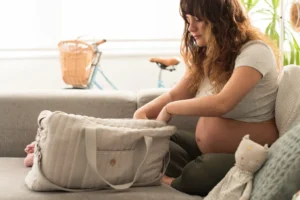Having a baby is a happiest moment for a mother, but not for all is the same story.
For most new mothers, first several days after giving birth is a emotional roller coaster ride. Their happy and cherishable moments are interrupted by a plunge into moments of depressive symptoms like anxiety, anger, insomnia, weeping, sadness and sudden mood swings and in some it pushes to suicidal thought. These “baby blues” peaks in the first two to five days after delivery, and in most women, go away as quickly as they came. Except for some women, these symptoms continue over weeks or even next several months after having baby. Study says that postpartum depression is a debilitating mental disorder with prevalence between 5% and 60.8% worldwide. Those days this was considered as some evil spirit got into women body or treated as mental disorders, treated in wrong way pushed to death with wrong reasons.
The reason for causing postpartum depression couldn’t be one, there are many factors. It is thought that sudden fall in hormone levels after having a baby can lead to development of postpartum depression. And we know that strongest reason for this is personal history of mood disorder, especially if not treated at pregnancy. Other factor that may contribute for postpartum depression could be lifestyle and social stressors like lack of family support and financial support. A new mother, especially if she is a first-time mother she expects support from two people in her life, one is her mother support who needs to pamper her provide good healthy food on time and other one is her life partner where she needs moral support encouraging and appreciating words, a shoulder to rest her, being and showing her that she is not alone in this journey.
Unfortunately, there is no concrete remedy or solution is there. For some women postpartum depression symptoms go away without treatment, but about 20% of women will still have significant depressive symptoms even after a year. As solution for each woman may vary depends on the reason for depression. And in many scenarios’ woman don’t reach for help, this postpartum depression is less noticed by people unless she asks for help. Women can get psychologist support and reach out for support groups and peer groups. And this is also in hands of her own family people who should be very supportive emotionally in this journey.
She herself can help out to come out of this, create a small wats app group with your most reliable friends who are mother recently gave birth and share and shed out whatever you want. Will give a big relief. Secondly have diary and write down when ever you feel emotionally low, cry out loud don’t hold it too much inside whenever you feel so. Have a punching bag or a hard pillow, punch it harder whenever you are angry. Trust me it works, writing based on my journey how I passed through myself without my social support.




